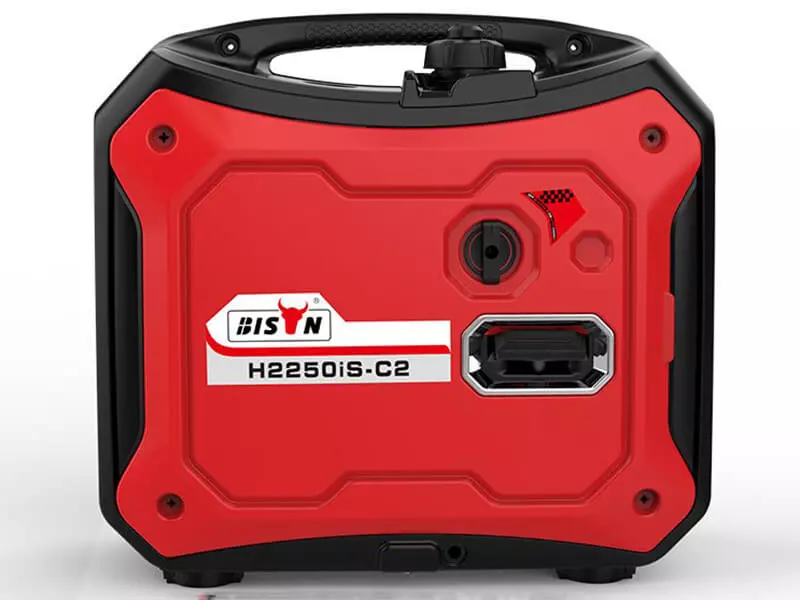What Is an Inverter Generator? Everything You Need to Know
What Is an Inverter Generator? Everything You Need to Know
Blog Article

If you’ve ever experienced a power cut or enjoyed camping trips where electricity wasn’t readily available, you’ve likely considered a portable power solution. One of the most reliable, efficient, and quiet options available today is an inverter generator. But what exactly is it, how does it work, and is it worth the investment? Let’s break it down in simple terms.
What Is an Inverter Generator?
An inverter generator is a portable generator that uses advanced electronic circuitry and high-tech magnets to convert direct current (DC) into clean and stable alternating current (AC). This technology allows it to deliver power that’s safe for even the most sensitive electronic devices like smartphones, laptops, and medical equipment.
Unlike traditional generators, inverter generators are known for their fuel efficiency, low noise levels, and compact design, making them a top pick for camping, RVs, tailgating, and small home backup needs.
If you’re shopping around, check out this leading inverter generator company offering a range of reliable, efficient models.
How Does It Work?
The process is simple but smart:
-
The generator engine runs on fuel (typically gasoline).
-
It first generates unstable AC power.
-
This is then converted into DC power.
-
A built-in inverter converts the DC back into clean, stable AC power — perfect for sensitive electronics.
-
You can plug in your appliances and use the electricity via the generator’s outlets.
Key Features and Benefits
✅ Fuel Efficiency
Unlike traditional generators that run at a constant speed, inverter generators adjust engine speed based on the load. Less load = less fuel used.
✅ Clean Power Output
They produce a smooth sine wave of electricity, making them safer for sensitive gadgets and devices.
✅ Quiet Operation
Thanks to variable speed and noise-reducing designs, they operate much more quietly than conventional generators — typically around 60-70 dB.
✅ Portability
Inverter generators are smaller and lighter, which makes them easier to carry, transport, and store.
✅ Parallel Capability
Need more power? You can connect two inverter generators in parallel to double the output.
Are There Any Drawbacks?
Like all things, inverter generators have a few downsides:
-
Higher Price Tag – You pay more upfront for better performance and cleaner power.
-
Lower Power Output – They're not ideal for running entire households during major blackouts.
-
Outdoor Use Only – Still powered by gasoline, they emit carbon monoxide and must never be used indoors.
Safety Tips for Inverter Generator Use
-
Always operate outdoors – at least 20 feet from any structure.
-
Never plug it directly into your home’s electrical system without a transfer switch.
-
Use GFCI-protected extension cords when operating in wet environments.
-
Watch for CO symptoms – dizziness, nausea, or fatigue could be signs of carbon monoxide poisoning.
How to Choose the Right Inverter Generator
Before buying, ask yourself:
-
How much power do I need?
-
What devices or appliances will I run?
For powering essentials like laptops, lights, and a fridge during a blackout or your campsite, an inverter generator is ideal. For larger needs, consider a high-capacity model from a reputable inverter generator company that specializes in quality and safety.
FAQs
Q1: Can an inverter generator run a refrigerator?
Yes! Most models with at least 2,000 watts can easily power a standard refrigerator.
Q2: Is an inverter generator AC or DC?
It produces AC power but goes through a DC stage to ensure cleaner, more stable electricity output.
Q3: How long can an inverter generator run?
Depending on the model, they can typically run for 1,000–2,000 hours over their lifespan with proper maintenance.
Q4: Are inverter generators quieter?
Absolutely. They usually operate between 60-70 dB — much quieter than conventional models.
Q5: Can I use an inverter generator indoors?
No! It’s not safe due to the risk of carbon monoxide poisoning. Always use outdoors.
Conclusion
Inverter generators are a smart investment for those who value quiet, efficient, and clean power. Whether you’re camping off-grid, powering a few essentials during a blackout, or just want peace of mind, an inverter generator is a powerful companion.
Looking for a trusted brand? Explore options from this reliable inverter generator company that delivers performance, safety, and innovation in every model.
Report this page